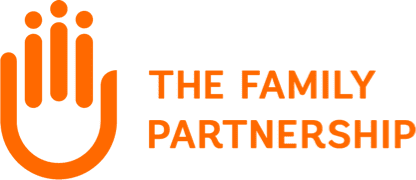North Minneapolis Preschool’s recent graduation ceremony marked an important threshold in the lives of two young scholars, Miles and Zayvior. On one side are their earliest learning experiences; on the other, a lifetime of learning. After all, many studies show that children who have a strong foundation for learning in their early years are more likely to achieve success in school, work, and life.
The ceremony happened on a hot August afternoon, with the boys dressed in blue caps and gowns, surrounded by proud family members and staff, cupcakes and balloons. Zayvior and Miles listened as Cassaundra Davis, Preschool Director, reflected on their roles as leaders in their early learning community. “They were big contributors to their classroom. They were kind of the big brothers here, and I know they will be missed by the kids and by the teachers as well. And I know nothing but great things are going to happen for them.”
They were big contributors in their classroom. They were kind of the big brothers here, and I know they will be missed by the kids and by the teachers as well. And I know nothing but great things are going to happen for them.”
Cassaundra Davis, Director of North Minneapolis Preschool
Preschool graduation is more than a celebration for children and their families, because early learning matters for entire communities. Harvard University’s Center on the Developing Child even calls early childhood education “the foundation for a prosperous and sustainable society.”
In an equitable world, every young child would access quality early learning opportunities and enjoy this kind of ceremony. For now, there is still work to do to make that dream a reality.
Preschool graduation is more than a celebration for children and their families, because early learning matters for entire communities.
Opportunity gaps begin in early childhood
The truth is that opportunity gaps existing in Minnesota make that reality out of reach. Minnesota has the second worst racial inequities in the nation when it comes to economic opportunities and outcomes and those inequities begin in early childhood. According to an article published by the Federal Reserve Bank of Minneapolis, “disparities in social and economic conditions and health care access influence” school readiness, and “data suggest early-life inequalities like these are difficult to close.”
The reason why early childhood is so important to later success in life is due to the lightning-fast pace of brain development in our first years of life. Our brains are shaped by our experiences and research has shown that to be particularly true from the prenatal period through age five. When young children experience adverse childhood experiences (ACEs), including abuse, neglect, or family dysfunction, these experiences impact their brain development, which then impacts the executive functioning and self-regulation skills needed for success in learning environments.
The impact of ACEs goes beyond the household to include systemic expressions like racial and economic injustice. According to a recent study published in the According to a recent study published in the Journal of Child & Adolescent Trauma, there are a “myriad of consequences linked to racial discrimination” for Black youth in particular that include “decreased psychological, behavioral, and emotional functioning.” Harvard University’s Center on the Developing Child notes that multiple studies show the impacts of racism on children and caregivers including higher stress responses, heavier mental health burdens and worse health outcomes.
In Minnesota, African American and American Indian adults have three times the Adverse Childhood Experiences (ACEs) scores of their white peers. While 7% of white adults report 5 or more ACEs, 19% of African American and Black and 23% of American Indian adults reported the same.
It is important to recognize that systemic racism has led to different access to resources in our communities which impacts living conditions as well as the physical and mental health of all members of families. The connection between systemic injustice and ACEs cannot be ignored.
In recent years, systemic inequities were made worse in Minneapolis by the COVID-19 pandemic and the trauma associated with police brutality. State data shows that the age-adjusted excess mortality rate from COVID-19 was significantly higher for Black, Latino, Asian/Pacific Islander, and Native Minnesotans than white Minnesotans. And in the the week following George Floyd’s murder, more than 51% of Black Minnesotans reported feeling anxious or depressed compared with 29% of White Minnesotans. A study published in Proceedings of the National Academy of Sciences (PNAS) explains how direct and vicarious trauma from police brutality leads to “downstream effects” on Black Americans, including:
- Physical health and mortality
- Social and family relationships
- Economic hardship and precarity
Since 2020, the communities served by The Family Partnership have experienced increased food scarcity and higher rates of violent crime. Additionally, families experienced increased isolation and uncertainty navigating multiple years of a public health emergency, and young children lost opportunities for learning and socialization outside of the home. Young children entering preschool in Minneapolis today were born in this context and face greater developmental challenges than before.
Addressing racial disparities in early education can lead to bigger social change now and in the future
Even with these heavy realities, research has shown that high quality childcare and preschools can help to buffer children against ACEs and close opportunity gaps. John Everett Till, Senior Vice President of Strategy and Innovation for The Family Partnership, says, “The issue is always–do families have access to high quality early education? For many Native American and Black families, the answer to that question is ‘no.’”
The Learning Policy Institute identifies the following factors as some essential elements of quality programs:
- Sufficient learning time
- Small class sizes
- Low student-teacher ratios
- Well-prepared teachers who provide engaging interactions
- Ongoing support for teachers, including coaching and mentoring
- Research-based, developmentally appropriate early learning standards and curricula
- Meaningful family engagement
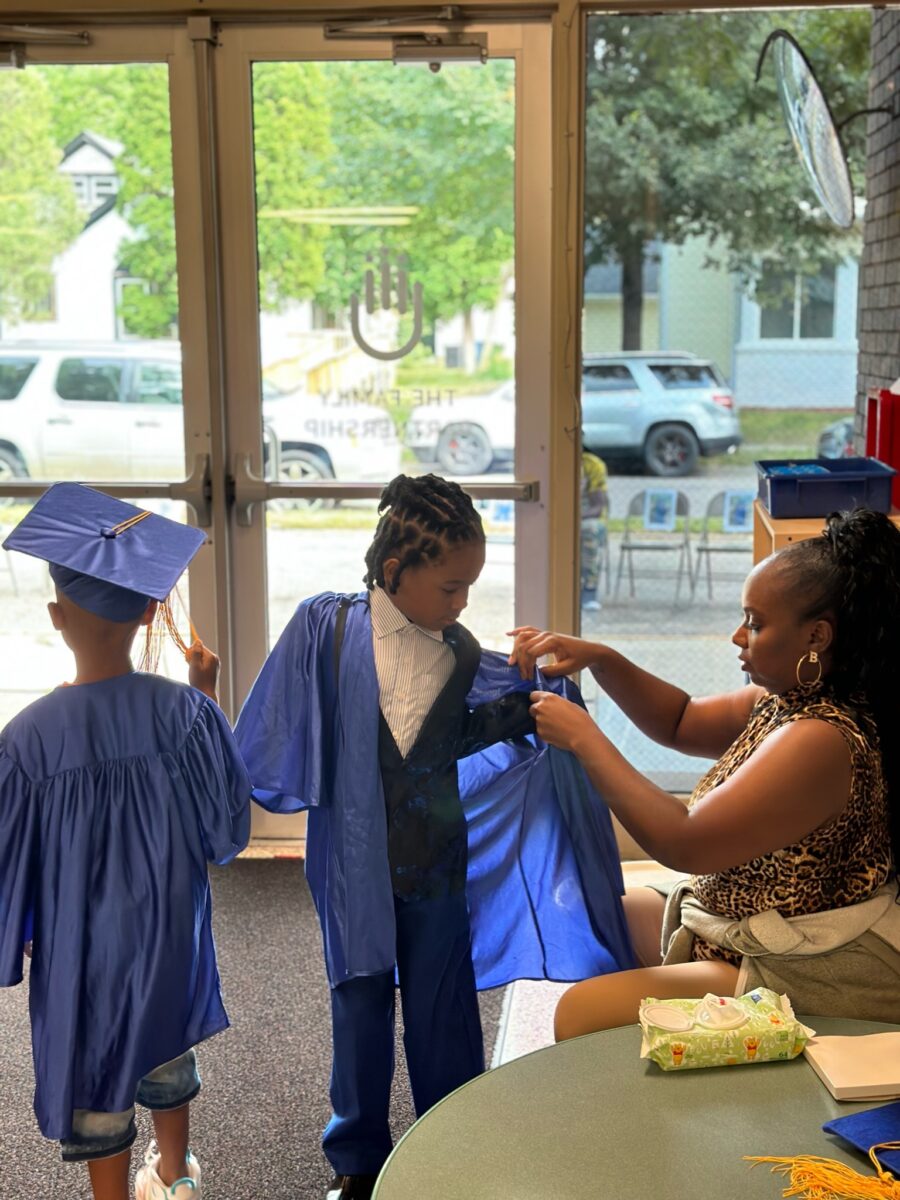
Research has shown that high quality childcare and preschools can help to buffer children against ACEs and close opportunity gaps.
The Family Partnership is committed to addressing the roots of opportunity gaps through early childhood education and care, meeting the standards outlined above. But our efforts go beyond them as well. Our preschools, Four Directions and North Minneapolis Preschool, prioritize small class sizes with highly trained teachers who reflect the diversity of the students and families we serve. Both of our locations are in neighborhoods experiencing the greatest disparities. We also provide developmental assessments to identify any challenges children might be facing and provide access to onsite developmental therapies, dental and vision screenings as well.
We use a groundbreaking preschool curriculum that buffers against ACEs and prepares children for kindergarten success
Our preschools are some of the first programs in the nation to implement our Executive Function Curriculum, a two-generation toolkit to build lifelong resilience and focus. Executive function skills are the number one predictor of success in school, work, and life, but can be disrupted by ACEs and toxic stress. Our curriculum is designed to reduce the harmful effects of trauma and close opportunity gaps for young children so they can better fulfill their potential.
With evaluation support from Harvard Center on the Developing Child and the Center for Early Education and Development at the University of Minnesota, our curriculum has demonstrated a significant impact on executive functioning skills like emotional descriptive language, positive age-appropriate behavior, and storytelling.
Our curriculum is designed to reduce the harmful effects of trauma and close opportunity gaps for young children so they can better fulfill their potential.
Our teachers receive training on the curriculum and ongoing support to make sure that it is easy and practical to use. Beginning this fall, parents and caregivers will also utilize the curriculum in a special home-visiting format that gives children more opportunities to build their skills. Thanks to the power of brain science and strong partnerships between teachers and parents, children in our preschools flourish.
What does preschool success look like?
Preschools prepare children to enter kindergarten, the beginning of their formal education. So, success for preschool is most often defined as kindergarten readiness.
A child is kindergarten-ready as defined by the State of Minnesota when the student has “knowledge and skills across multiple development and learning areas and will exhibit physical health and emotional well-being.”
According to an article published by the National Association for the Education of Young Children (NAEYC), kindergarten readiness skills look differently for every child based on their unique experiences. The State of Minnesota includes the readiness of communities, early childhood care and education, elementary schools, and families as essential parts of a child’s success in school.
The Family Partnership uses established measures to assess each child’s progress in our preschools. Assessments align with Minnesota’s early childhood indicators for progress and include the following learning domains:
- Social and emotional development
- Approaches to learning
- Language, literacy, and communications
- Creativity and the arts
- Cognitive development: mathematics, science and social systems
- Physical and movement development
We are thrilled to report that in 2023, 100% of the students at our North Minneapolis Preschool and our Four Directions Preschool in South Minneapolis tested kindergarten-ready. That’s compared with a 60% Minnesota state average kindergarten readiness rate, and 52% kindergarten readiness rate for children from low-income households.
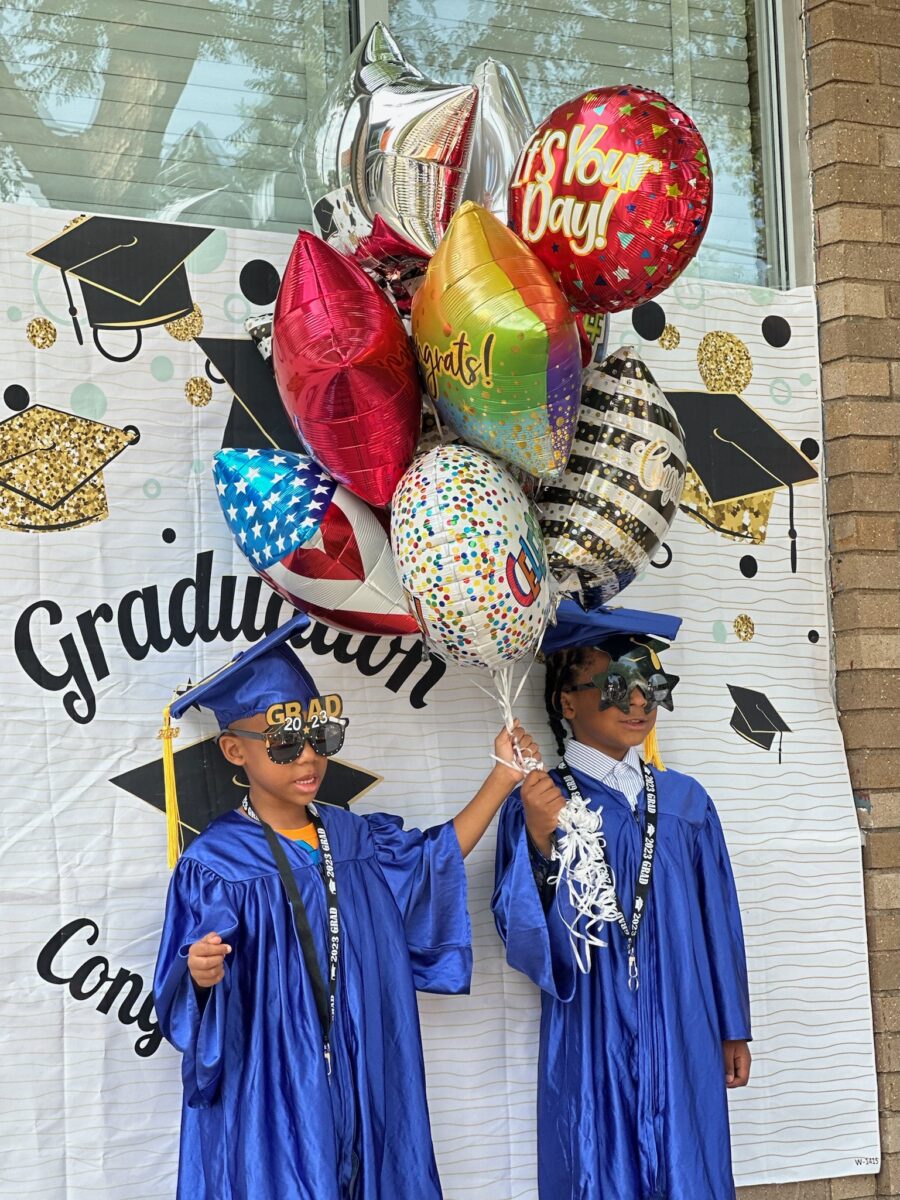
We’re proud of the young scholars who graduated from our preschools this summer. We congratulate each young scholar on their hard work and trust that they will bloom in kindergarten and beyond! They and their families are part of a generational healing movement in Minneapolis and leaders in showing how early education can be a powerful force for advancing equity in Minnesota.
To learn more about how our preschools use the Executive Function Curriculum to buffer against ACEs and prepare for school success, click here.
For President and CEO Dianne Haulcy, the Minnesota State Legislature’s 2023 spring session marked a breakthrough for the Early Childhood Education (ECE) and care. “In over 30 years of work have never seen anything like it,” Haulcy said. “In fact, it’s getting national attention–especially in states focused on reducing child poverty and helping children, youth, and families.”
In over 30 years of work have never seen anything like it. In fact, it’s getting national attention–especially in states focused on reducing child poverty and helping children, youth, and families.”
Dianne Haulcy
Investments include $559.13 million in the coming fiscal year to address longstanding ECE workforce shortages in Minnesota that worsened during the COVID-19 pandemic. One of the silver linings of the pandemic is that we all experienced in real time the importance of having a solid early childhood care and education system to support our workforce. Therefore, thanks to increased funding, ECE workers and students will find improved access to education, professional development, and compensation as early as this summer.
If you’re an ECE professional, student, or considering a profession in the field, check out seven highlights from the spring session that you should know about.
1. The Great Start Compensation Support Payments program will improve ECE worker wages
$316.1 million for FY24-25, $259.7 million for 2026-27
The Minnesota state legislature established the Great Start Compensation Support program in May 2023 to provide permanent increased monthly compensation and benefits for ECE workers. According to Child Care Aware of Minnesota, the program builds off two 2021 grant programs, The American Rescue Plan Act and Minnesota’s Child Care Stabilization Program.
According to Minnesota’s Children’s Cabinet, this program “will help recruit and retain child care workers, improve child care access for families across the state and support the broader workforce and economy.” This support is essential to the early childhood workforce. Without this support, Lead Teachers in the Twin Cities Metro Area make a median salary of just $29,786 while Assistant Teachers earn a median salary of $27,169–significantly less than the $37,536 cost of living for a single person household.
To aid in the transition, the Minnesota Department of Human Services is offering transition grants to eligible providers. For more information on eligibility, deadlines, and allowable uses of funds for Great Start Compensation Support Transition Grants, visit the DHS webpage. Note that transition grant applications for August are due August 22, 2023, and for September by September 22, 2023.
- Empower to Educate
- Child Care Aware MN
- The workforce development grant (Empower to Educate) to support economically challenged individuals to being a career in child care ($1.995 million per year) beginning in 2025
2. The Early Education Wage Scale will provide early childhood workers with compensation that equals elementary school educators
$1 million wage scale development, $68k cost estimation model of care
In May 2023, the Minnesota Department of Human Services received funding to create a cost estimation model of care for early childhood programs. DHS will use this new cost estimation model to set provider rates for the Child Care Assistance Program (CCAP) that equal elementary school educators. According to Minnesota’s Children’s Cabinet, this law will also develop a “process for recognizing competencies achieved through training and experience that are comparable to degrees and credentials.”
What does this mean for early childhood professionals? Your education and experience will more easily support a higher rate of compensation and benefits. Whether you achieve a degree in early childhood education, participate in an apprenticeship program, or engage in hours of training on the job, you’ll be building toward a stronger salary.
This law benefits early childhood professionals as well as families, because it incentivizes an experienced early childhood workforce. For more information on wage scale recommendations, check out the Great Start for All Minnesota Children Task Force Report.
3. Grow Your Own will raise up early childhood educators who represent the children in their classrooms
$2.5 Million FY24-25, $1 Million ongoing
The 2023 Spring state legislative session expanded funding for Grow Your Own (GYO) to the early childhood field. Prior to this, GYO programs in Minnesota focused on recruitment of K-12 teachers to ease “local teacher shortages and…increase racial and linguistic diversity of the teacher workforce.” This funding provides Grow Your Own funding for building and expansion of programs that help individuals attain a Child Development Associate degree, Associate’s or Bachelor’s in early childhood, family education, or early childhood licensures.
If you plan to pursue a higher education degree in early childhood, keep your eyes on the GYO grant program. You may qualify for grant funding to pay for stipends, tuition scholarships, or student teaching. When more information becomes available, we’ll be sure to share it with you.
4. Increased funding for REETAIN expands access to bonuses for early career ECE professionals
$4.28 Million FY24-25, $900k per year ongoing
Minnesota legislators have approved an increase in funding for the Retaining Early Educators Through Attaining Incentives Now (REETAIN) program. According to Child Care Aware of Minnesota, REETAIN provides bonuses that “help supplement income for early childhood educators as they work to establish a career in the field.” Early childhood educators working in centers and family settings may qualify, and can be used for both professional and personal expenses.
For more information on eligibility and the application process, visit Child Care Aware of Minnesota’s REETAIN page.
5. T.E.A.C.H. provides scholarships for college credits and degrees in early childhood
$695,000 per year
Child Care Aware MN established T.E.A.C.H. Early Childhood® Minnesota scholarships in 2002 to for early childhood educators to “increase their levels of education, compensation, and commitment to the field by earning college credits and degrees.” For qualified applicants, T.E.A.C.H. Scholarships can fund several parts of your education:
In 2023, Minnesota state legislators voted to continue funding for T.E.A.C.H. If you’re a family or center care provider, you may be eligible for a scholarship that covers costs for education. If you receive a scholarship, you’ll be asked to commit to at least a year of work at your place of employment after the scholarship ends.
According to Child Care Aware of Minnesota, scholarships will fund “college credit or an associate or bachelor’s degree in Child Development or Early Childhood Education at an accredited Minnesota college or university.” You might also be eligible if you’re part of Empower to Educate, earning fewer credits, or completing your CDA trainings at an approved institution.
You can use T.E.A.C.H. scholarships to pay for:
- 85% of tuition and book costs for college credit, up to 18 credits
- Travel stipends and release time
- Raises or bonuses after completing nine or more credits
For more information on the scholarship, including eligibility and the application process, visit Child Care Aware of Minnesota’s T.E.A.C.H. page.
6. Early Childhood Registered Apprenticeship Grant Program will provide on-the-job training and mentoring opportunities
$3.2 million in FY24-25, $2 million ongoing
The May 2023 Minnesota state legislative session also gave funding to the Minnesota Department of Human Services to establish an early childhood apprenticeship program. Qualified apprentices can receive a higher education scholarship of up to $10,000, with the following provisions:
- You’re enrolled in a registered apprenticeship program
- You are a current participant in good standing in the T.E.A.C.H. scholarship program
- You participate in meetings and on-the-job learning with a mentor
- You work toward meeting early childhood competencies
- You work toward the attainment of a higher education degree in early childhood
Are you already an early childhood provider? You’ll want to keep your eyes on this program. The apprenticeship grant also offers mentors stipends of up to $4,000 per mentor. Mentors can qualify for this stipend after eight weeks of training and additional training on observation.
While the early childhood apprenticeship program has yet to be established, in the future you can find information using Minnesota State’s Education search tool. This tool gives you the optino to find registered apprenticeships based on campus, program, or course.
For current apprenticeship opportunities through T.E.A.C.H. check out Child Care Aware of Minnesota’s T.E.A.C.H. apprenticeship program page.
7. Child Care Wayfinder received ongoing funds to help child care providers to start and sustain programs
$2.92 million per year
If you want to start your own child care program or currently operate one, we have good news to share about Child Care Wayfinder. Wayfinder was launched in 2022 as a “one-stop navigation network” helping providers to start and sustain their programs. The program just received funding from state legislators in spring 2023 to continue.
According to Child Care Aware of Minnesota, Wayfinder prioritizes communities facing the greatest disparities in access. The program reduces disparities by addressing some of the greatest barriers to outreach, recruitment, and navigation services including how to:
- Start a family child care or center child care program
- Increase license capacity
- Open more locations
- Make a business plan
- Attend licensing information sessions
- Apply for a license
- Get a Parent Aware Rating
- Other resources
Through Wayfinder, you can reach out to a local navigator for “encouragement, support, and connection.” To find your local navigator, visit Child Care Wayfinder’s contact us page or call 888-986-8207.
Investment in early childhood professionals leads to greater equity and prosperity in Minnesota.
Minnesota’s 2023 spring legislative session has made national headlines for its investment in early childhood education. By investing in the early childhood workforce, our state is becoming one of the best places for early childhood professionals to work and live.
ECE professionals do some of the most important work in our communities. They provide enriching environments for our state’s youngest learners and prepare them to be successful in school, work, and life. The U.S. Department of Education reports that “a robust body of research shows that children who participate in high-quality preschool programs have better health, social-emotional, and cognitive outcomes than those who do not participate.” The influence of early childhood educators and caregivers is lifelong!
Qualified early childhood professionals also play an important role in racial and economic justice across Minnesota. The Minnesota Department of Health reports disparities in access to early childhood education—and its benefits—for Black, Indigenous, and children of color as well as children from low-income households.
By expanding access to education, training, salaries and other resources for early childhood professionals, Minnesota is on track to support an experienced and diverse workforce that can offer quality and culturally responsive early childhood programs in Minnesota.
“The return on investment from early childhood development is extraordinary, resulting in better working public schools, more educated workers and less crime.”
Arthur J. Rolnick
Even more, early childhood workers support a prosperous economy in Minnesota. The Family Partnership’s new board member, Arthur J. Rolnick, senior fellow at the Humphrey School of Public Affairs at the University of Minnesota, explains the financial benefit of a more stable early childhood workforce. Rolnick says, “The return on investment from early childhood development is extraordinary, resulting in better working public schools, more educated workers and less crime.” By supporting the important work of ECE professionals, children, families, and communities in Minnesota will thrive.
The Family Partnership is currently hiring Lead Teachers and Teacher’s Aides at our North Minneapolis Preschool and South Minneapolis preschool, Four Directions. For more information on career opportunities in early childhood with us, visit our careers page.
These numbers are amazing on their own. But the truth is, these numbers are not just about 2022 accomplishments–they’re milestones in bigger stories of generational healing.
Dianne Haulcy, President and CEO
Dianne Haulcy presents The Family Partnership’s 2022 Annual Report
From Dianne Haulcy, President and CEO of The Family Partnership:
It is my pleasure to bring to you our 2022 Annual Report.
For me, this report reflects an unforgettable first year leading this amazing organization. But most importantly, this report celebrates the good things that we have done together!
Consider these facts from our 2022 Annual Report:
- 95% of our preschoolers from Four Directions and our North Minneapolis Preschool graduated kindergarten ready.
- And that’s compared to 60% of all children in Minnesota, and 52% from low-income households.
- And through Family Home Visiting, 93% of parents and caregivers increased parenting skills and reduced their risk of maltreatment.
- While 94% of participants in Anti-Sex Trafficking Services through PRIDE decreased their involvement with the commercial sex industry.
These numbers are amazing on their own. But the truth is, these numbers are not just about 2022 accomplishments–they’re milestones in bigger stories of generational healing.
After all, Kindergarten readiness predicts long-term outcomes for a child including success in school, relationships, and careers;
Families with improved parenting skills can reduce Adverse Childhood Experiences, leading to improved health and wellbeing for a lifetime;
And when youth and adults leave the commercial sex industry, they leave behind exploitation to claim safe, vibrant, and self-sufficient futures.
These are just some of the numbers in this report worth celebrating. Thanks to your support, these numbers represent over 4500 children and adults who experienced healing in 2022.
This work continues in 2023. And if you want to be part of generational healing in the Twin Cities and beyond, visit the Ways to Give page on our website to learn more.
One last thought: When you read this report, I invite you to take time to really see yourself in this story. The truth is, this healing work takes all of us. Your participation is worth celebrating as well. Thank you!
On June 15, 2023, our North Minneapolis preschool hosted a family event to celebrate Juneteenth.
Imagine a preschool party where young scholars dance under hundreds of bubbles from a bubble machine. The sounds of upbeat music and laughing children fills the room. They dance surrounded by streamers that spell out “freedom” and portraits of heroic figures like Harriet Tubman, Frederick Douglass, and Rosa Parks. Off of the dance floor, parents sit in tiny chairs coloring with their children and chatting with teachers and other families.
Can you feel the joy?
This was the scene last week when teachers and families of The Family Partnership’s North Minneapolis preschool gathered to celebrate Juneteenth. Juneteenth marks an important day many years ago, in 1865, when formerly enslaved African Americans in Texas learned that they were free. The holiday has been celebrated by African Americans every year since and was made a federal holiday in 2021.
At North Minneapolis Preschool, teachers and children began this year’s celebration by wearing specially-made Juneteenth shirts. Designed by Brandy Murray, Danetra Love, and Cassaundra Davis, each shirt was as unique as the person wearing it. The designs showed “Black Girl Magic,” broken chains, colorful hearts, and afros adorned with crowns. Each shirt helped to tell a fuller story about the special day.
In the classroom, children created Pan-African flags with glue sticks, crayons, and construction paper in red, black, and green. Teachers shared Sesame Street’s “Let’s Celebrate Juneteenth Song” by Gordon and the Power of We club. As Gordon says in the video, Juneteenth is “the day that celebrates and reminds us that we are all equal and deserve the same freedom, kindness, and love.”
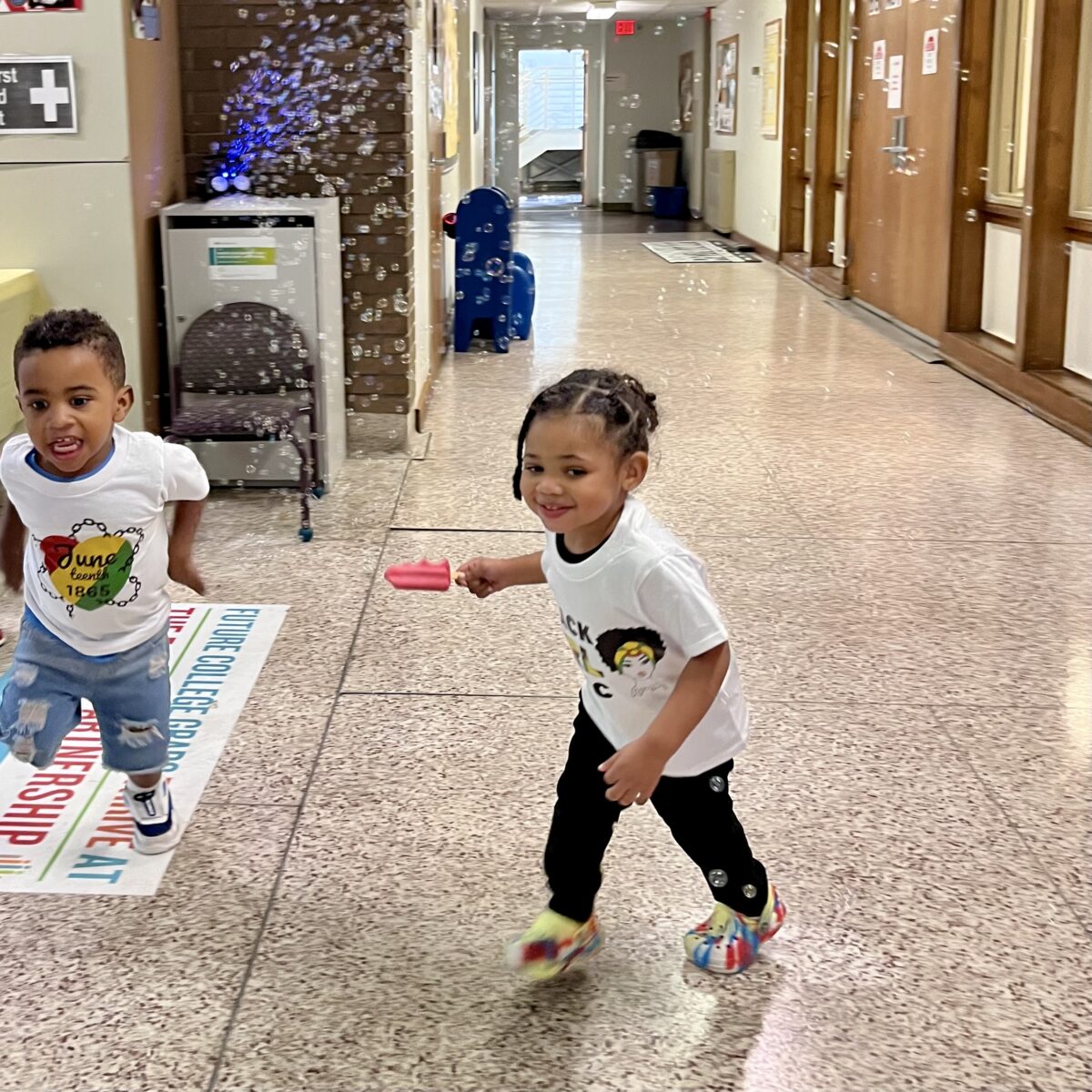
After school, families joined in the festivities. Parents, siblings, scholars, and teachers gathered around to hear Portlynn Henderson, Family Achievement Coach from Northside Achievement Zone (NAZ), read Our Beautiful Colors. Children excitedly pointed to the beautiful illustrations that showed Black children “in all shades of brown” playing together on a warm summer day.
It wouldn’t be a real celebration without food. The group feasted on sandwiches prepared by The Hoagie Queen, who generously donated a tray. To go with the hoagies, Tunde, the husband of a staff member, made delicious jollof rice. And for dessert—popsicles!
After so much fun, it was time to head home. Each child received a gift bag that included a book and snacks.
From start to end, this year’s Juneteenth celebration was pure joy!
Celebrating African American children and families
Events like the Juneteenth celebration reflect North Minneapolis Preschool’s commitment to cultural care in early childhood education. Our multicultural program is located in one of Minneapolis’ largest Black communities and emphasizes African American culture.
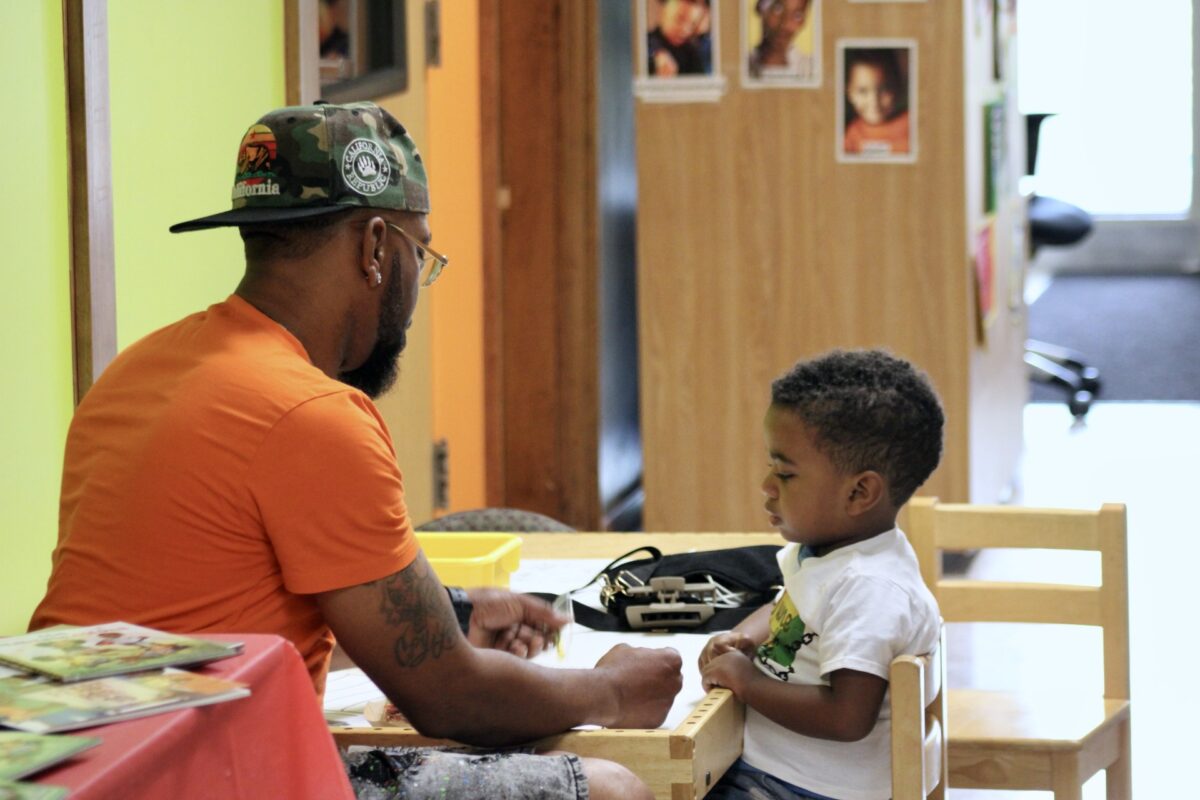
By celebrating African American children, North Minneapolis Preschool helps young Black scholars to see themselves in their role models and curriculum. At the same time, every young scholar learns to celebrate differences–including what makes them unique!
We leverage events like the Juneteenth celebration to strengthen partnerships with parents and caregivers. When parents, caregivers, and teachers spend quality time together, we improve our shared efforts to help young scholars succeed.
Parents and caregivers also have the opportunity during events to explore community resources and services for the whole family, as part of The Family Partnership’s two-generation approach.
We have to partner with the family in order for the child to be successful because we are all a part of their lives.
Cassaundra Davis, Preschool Director
As Cassaundra Davis, Preschool Director, says, “We have to partner with the family in order for the child to be successful because we are all a part of their lives.”
This approach works: more than 90% of children in The Family Partnership’s early childhood education programs graduate kindergarten-ready, compared with 60% of all children statewide and 52% of children from low-income households.
The next celebration could include you
You’re invited to be part of the joy!
North Minneapolis Preschool has current openings in our toddler and pre-K classrooms. If you want more information on enrolling your child, visit our program page.
We also have current job openings for Lead Teachers and Teachers Aides. If you are interested in working with us, visit our careers page.
We want to thank the staff and families who brought our Juneteenth event to life as well as NAZ for their time and book donations.
If you live or work with teens and tweens, you might know that pushing boundaries and testing limits is part of healthy development. Yet with summer almost here, some parents and folks who work with youth are concerned. More free time could potentially lead toward more high-risk behaviors and isolation from family and friends.
So how do we help our teens reset and prepare for success this summer and into the next school year? Therapists from our Multisystemic Therapy Program (MST) have some tips on how families can plan a smooth summer with their tweens and teens.
1. Create routine and structure
Youth thrive on routine and structure.
- Encourage a consistent sleep schedule.
- Provide daily chores or tasks for them to complete.
- Encourage your tween or teen to engage in learning every day. Whether it’s reading a book, listening to a podcast, or watching an educational YouTube video.
- Schedule activities like sports, clubs, camps, employment, volunteer opportunities, etc.
While it isn’t necessary to schedule your youth’s day minute-by-minute, having some structure will decrease boredom, provide something to look forward to, and reduce the overall risk of your youth getting into trouble.
2. Establish rules
Establish and enforce basic rules to reduce the potential for conflict in the home and the risk of negative behavior.
The most effective rules are:
- Clear: youth know exactly what is expected of them
- Enforceable: something that can be objectively verified
- Time-specific: ensure that there is a deadline
- Developmentally appropriate: matches your youth’s skills and abilities
A good example of an important rule to establish is curfew. Consider using legal curfew times based on your youth’s age.
Establish how much time your youth spends unsupervised. The less time your youth has on their own, the less likely they are to engage in negative behaviors.
Encourage compliance with the rules by tying them to meaningful rewards and consequences.
3. Encourage activities
Explore your youth’s interests, and look for opportunities to foster them in the community.
To get you started, here are a few local programs:
- Teen Teamworks, Minneapolis Parks and Recreation Board
- Comprehensive Arts Training and Employment for Youth, Juxtaposition Arts
- Summer Youth Employment Program, Tree Trust
- Apprenticeship Program, Urban Boat Builders
- Youth Programs, Urban Ventures
Youth programming is often available at community recreation centers, YMCAs, libraries, and schools. Your city or county may offer youth-specific programming, programs with incentives for youth, summer internships, or summer jobs.
4. Manage technology
It’s important to allow youth to have some screen time, but it’s also important to set limits.
- Establish downtime, a period of time when technology use is paused.
- Limit technology use during family meals and activities.
- Move computers, devices, and gaming consoles into shared living spaces to manage screen time more easily.
- Allow use of technology only after specified tasks or activities have been completed.
Many devices and apps offer features that can help you manage your youth’s use of technology.
Remember: youth live what they learn.
Do everything in your power to model healthy technology use by setting your own limits and taking breaks from screens. Spend this time engaging and connecting with your youth!
5. Practice self-care
Self-care is important for maintaining a healthy and happy family.
- Take a few minutes each day to practice mindfulness; deep breathing, meditation, or going for a walk can help you manage stress and improve your overall well-being.
- Practice (and model) healthy boundaries. Say “no” to commitments that will cause unnecessary stress.
- Spend time with friends and family who encourage and support you.
- It’s important to take breaks throughout the day to recharge and relax.
- Ask for help when you need it.
Remember, self-care is not selfish! It’s not only essential for your well-being, it’s one of the most important factors in helping you become the best caregiver you can be. By prioritizing self-care, you’ll have more energy (and patience) to care for your tween or teen.
How can I tell if my tween or teen’s behaviors are putting them at risk?
Youth who exhibit antisocial or delinquent behaviors may be putting themselves or others at risk. Warning signs to look out for include:
- Verbal or physical aggression
- Property destruction
- Stealing from home, school, or the community
- Leaving home without permission
- Not coming home on time
- Substance use
- Low school success
- Truancy
- Non-compliance with school
It might be time to seek support if you see an increase in one or more of the above behaviors and haven’t been able to change the behaviors on your own. If you are struggling with your tween or teen, reach out to therapists in our Multisystemic Therapy Program (MST) for additional help.
Our MST therapists are trained to empower caregivers with proven parenting strategies that keep kids aged 12 to 17 in school, out of trouble, and in the home. Families who complete the MST program find a high rate of success, with 9 out of every 10 families experiencing positive outcomes.
For more information on MST and other resources, reach out to Jennifer Heldt, MST Program Manager and Clinical Supervisor for The Family Partnership. Jennifer’s email is jheldt@thefamilypartnership.org and her phone number is 763-291-8198.
We asked Board Chair Tommy Hillman and spouse Evelena Hillman to share their perspective on healing our community and why they support The Family Partnership.
How did you get involved with The Family Partnership?
“I met Dianne Haulcy in 2009 at an event when we happened to be sitting at the same table and we connected right away. She was looking for a board member at Reuben Lindh (the organization she led prior to its merger with The Family Partnership). They had an early childhood education focus which was a perfect fit with my interests to help kids get a good start in life. Now I’m thrilled she is back as President and CEO of The Family Partnership.” – Tommy
What has kept you involved?
“I see the direct line between the work we are doing to support the organization and how that is helping people in the community thrive and lead more fulfilling lives.” – Tommy
If you don’t have strong families, you can’t have strong communities. Everyone needs to play a role in how we’re building communities and making them stronger.
Tommy Hillman
“I see myself in some of the families, children and adults that are helped by the programs at The Family Partnership. To be honest, you’re just one circumstance or one opportunity away in some cases from being in a situation where you need services and support. I have been fortunate, but I understand that life is fragile.” – Evelena
What are your hopes for our community?
“I understand the challenges of growing up in the United States and being African-American and all the different things you face. I want to instill in our kids, and all youth, the idea that you have the power to drive positive change and make things better in the world.
What struck me when I did speaking to elementary and middle school kids about my career in North Minneapolis was that many of them said ‘Oh, I don’t think I could ever be what you are, ever.’ I said of course you can! You are just in third grade, you can do whatever you want. But they didn’t have that belief instilled in them.” – Tommy
I had experiences unlike anywhere else growing up with great schools in the diverse environment of North Minneapolis. My hope is that our city centers repair and grow to be a supportive beacon for the advancement of all people.
Evelena Hillman
What do you want people to know about The Family Partnership?
“Initially, we became involved because of my interest in early childhood education. But now we understand there is a lot more to The Family Partnership’s services. For example, the pandemic made us more aware of the mental health issues people face. Quite frankly, The Family Partnership is serving communities where people would not have access to those services, because they are not going to be able to pay for therapists out of pocket.” – Tommy
I wanted to do board service just as a way to give back, but I didn’t understand how much it was going to change me, or how much I was going to learn from the experience.
Tommy Hillman
Learn more how you can support The Family Partnership through volunteer opportunities or ways to give.
Terry Forliti is a survivor leader and has worked with The Family Partnership on UPSIDE, an initiative targeting sexual exploitation in Minneapolis. We asked her to tell her personal story and why change is possible.
I am one of the lucky ones.
I survived a 30-year drug addiction and a decade living on the streets of Minneapolis being sex-trafficked. Today, because of Fentanyl, using any chemical can be a death sentence. I’ve said goodbye to many of my street family friends because of drug overdoses or gun violence.
Not many of us who have traded sex for money (or other items of value) want to perform sex acts up to ten times a day. It isn’t normal and it doesn’t feel good, despite narratives of sex workers that you may have heard.
I never thought I would end up trading sex for drugs or money. Nor did I think that my partner would use me as a tool to secure money, drugs and status as a trafficker. Nevertheless, that is exactly what happened. As a woman, I had the body parts to generate revenue and I was forced to use them.
“My life on the streets of Minneapolis and Saint Paul began when I was in my mid-thirties, which isn’t a typical scenario.“
Terry Forliti
I grew up in Bloomington in an upper-middle class family. When I was 15 years-old and got my first job, I was raped by someone I trusted, my boss. I buried my feelings and didn’t tell anyone about it, but that act took my self-worth away. It led me to bury my feelings with drug use, and to further experiences of sexual exploitation that I didn’t know how to process or cope with.
Eventually, I descended to unspeakable places and lows in my life.
I was living on the streets of Minneapolis/Saint Paul with chronic mental health issues and a real bad cocaine addiction. At that point, I had a failed marriage, the inability to care for my two babies, and I had lost a 15-year corporate career. The streets were my family now.
Surviving on the streets meant I had to learn the ‘game’
Most of the women and men that I met on Minneapolis/Saint Paul’s streets and avenues including Franklin & Chicago, Bloomington & Lake, University & Rice, and Broadway & Lyndale, were people of color and had family members that were already in the life and had many years of lived experience. They took me (a white girl) under their wing and taught me the skills to survive.
To reduce physical harm (beatings), I would have to be compliant and make quota so that we, my pimp, co-pimps and others, would have enough cocaine/heroin/crack and a place to stay for the night. I was also responsible for all food, clothing and hygiene materials that were needed on a daily basis. A woman working in sex-trafficking might be sold for 6-10 sex acts per day. I had to find a way to earn up to $500 to $1,000 every day in order to survive.
“That was my world for many years. I saw no hope. I wanted to die. I grieved my children. I was a failure and couldn’t shake it.”
Terry Forliti
I did not think that I could overcome my addiction. I spent weeks at different jails, workhouses in Ramsey, Dakota and Hennepin County. When I was released, I always came away with a new ‘plug’ or new hustle. I saw my life as a burden to myself and those around me.
The crew that I ended up being a part of, would find us a place to stay by sharing drugs with a vulnerable person. One day, the young lady we had been staying with, was getting evicted from her apartment. Once again we were going to be homeless and needed to find another place to stay.
I was too tired to go on. I felt sick, nauseous and was ready to quit. We didn’t even have a car to sleep in. Little did I know, but that day was the catalyst for my life changing.
Long story short…I ended up getting arrested in Ramsey County that same afternoon. I had eleven bench warrants for my arrest in three counties. That meant that I was going to be locked up for a minute. I would have to serve my time in each county before being released. During that time, a jail guard suspected that I was pregnant and had me do an ultrasound in the jail. Indeed, I was pregnant.
I went straight from jail to drug treatment and supportive services. I didn’t know at the time that there were places that provided services for those who had been sex-trafficked like me, but eventually I was able to find supportive services and housing. Compared to twenty-five years ago, there are many more resources and organizations available to help those who have been sexually exploited.
I went on to obtain a bachelor’s degree in organizational leadership from Bethel University. Most importantly, I was able to deliver a healthy baby girl, who is now in her twenties. I also have a relationship with my son and daughter from my marriage and with my extended family.
“It is my passion to help others by speaking about my life journey overcoming addiction and sexual exploitation.”
Terry Forliti
I’ve spent years as an advocate and leader at several organizations walking alongside those who have had similar experiences in an effort to create community and healing. I know life can be hard, and it’s not necessarily fair or just. It’s not a cake walk, but I want others to know you can have joy and peace every day.
Change is possible! I believe that it takes a community of people that are non-judgmental and supportive. We can build that healing informed and person centered approach by mirroring it ourselves.
You can learn more about UPSIDE here.
The Family Partnership’s PRIDE program provides anti-sex trafficking services.
When I was growing up, diverse characters and stories in children’s books were almost non-existent. Although there are more opportunities to access diverse stories today, there is still much work to be done. According to the Associated Press and Huffington Post, in 2020, children’s books written about racially diverse characters or subjects represented only 30 percent of all new children’s books. And, their data from 2018 shows that there were more books with animals as the main characters compared to books with main characters from diverse backgrounds.
Black History month is a great opportunity for you to expand your children’s library and purchase stories written by African American authors that give a window into the African American experience. I have picked a few of my favorites I am pleased to share with you.
I love this story about a girl who loves her natural hair. She talks about the texture of her curls and the time it takes to put all the products on her hair. She also describes how she feels when people touch her hair without asking, “I don’t like it when other people touch my hair”, she says. “Sometimes they touch my hair without even asking.”
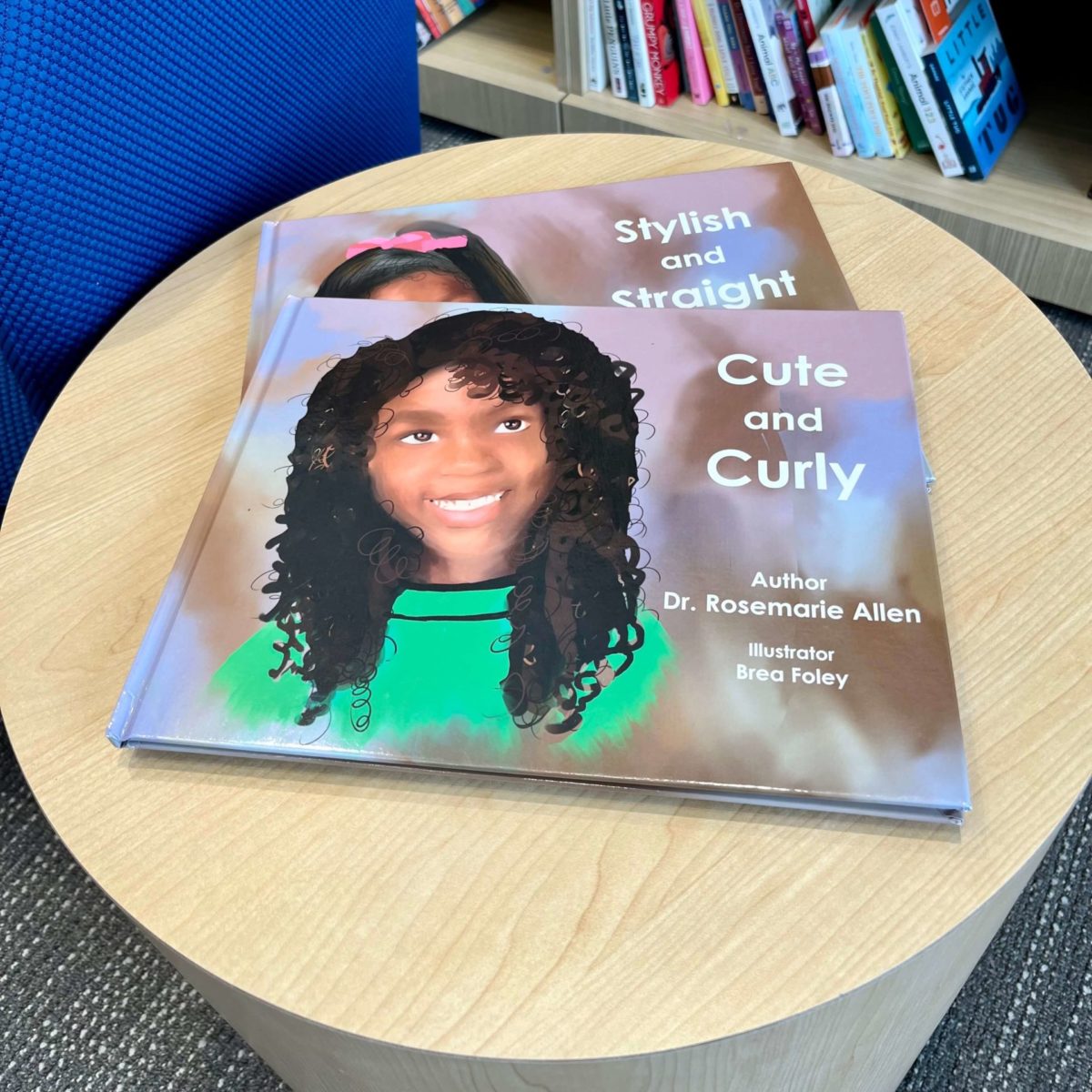
2. The Magic in Me (personalized book) by Timi Bliss
I love this unique concept, written by a Minnesota African American author, that allows you to personalize this book with your child’s name. Very young children need to see themselves in the stories that are told to them so they see their value and, in this book, they actually get to see their name as well!
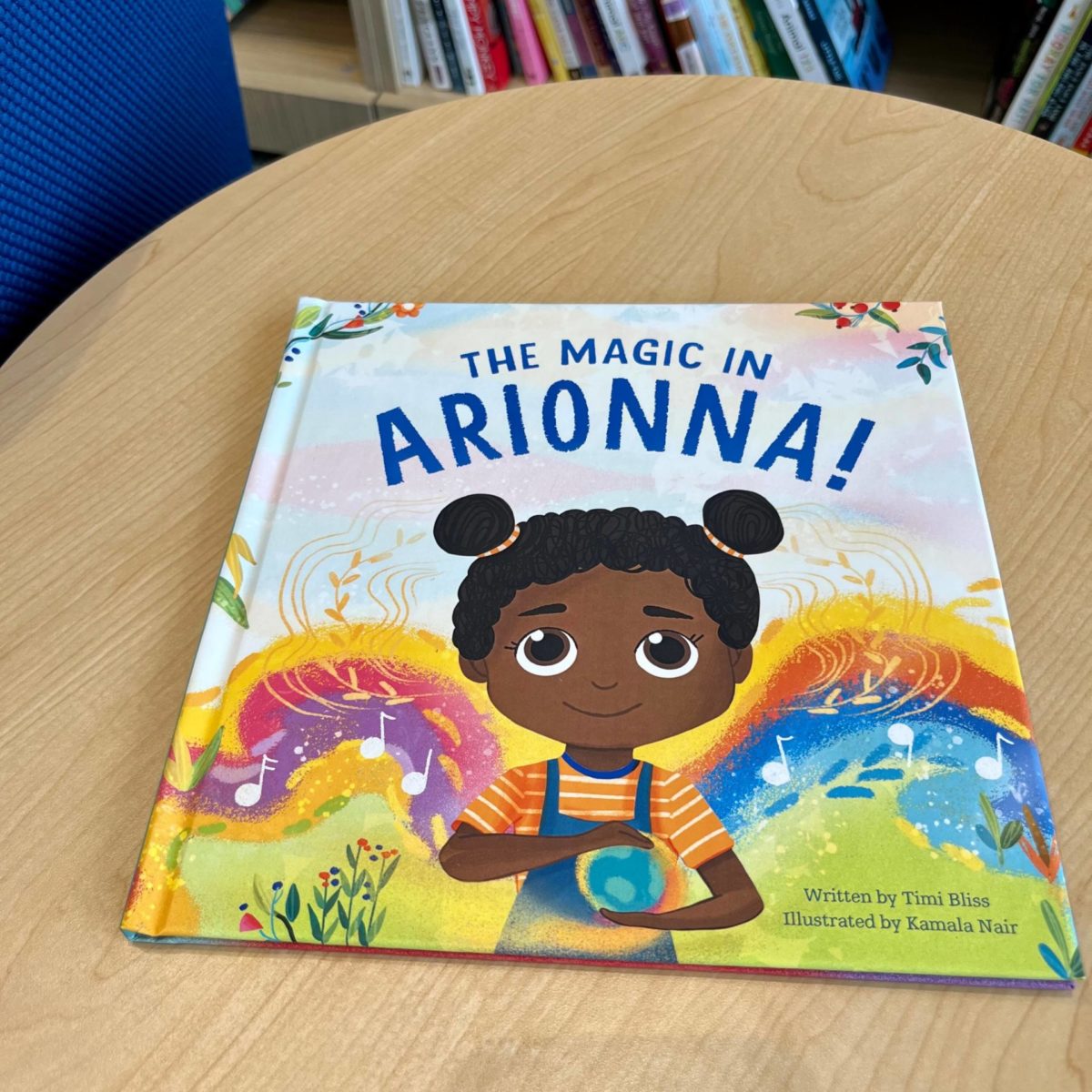
3. Magnolia Flower by Dr. Ibram X. Kendi
This is my new favorite children’s story about a young girl born to parents who fled slavery and the Trail of Tears. Magnolia Flower is a girl with a vibrant spirit. It is a story about how love can conquer the injustice in our world and it aptly describes the history of both African Americans and Indigenous people in America.
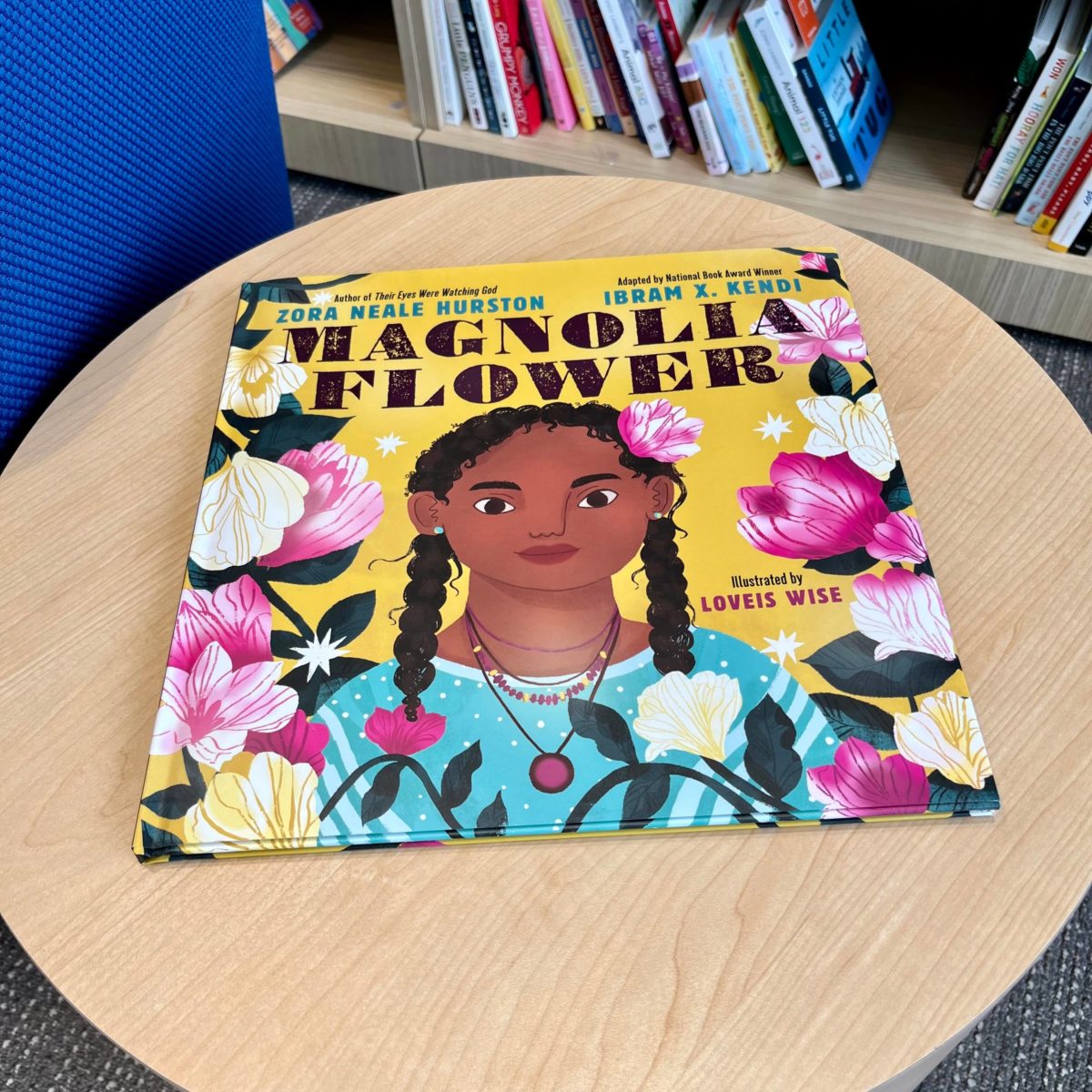
4. Daddy, Why Am I Brown? A Healthy Conversation About Skin Color and Family by Bedford Palmer
This book is a great tool to use as a starter conversation on how kids can learn to talk about skin color in a way that is kind, thoughtful, and healthy. They also learn a little bit about how to understand the difference between race, ethnicity, and culture. This is an important conversation to have with young children so they can learn that it is okay to talk about race.
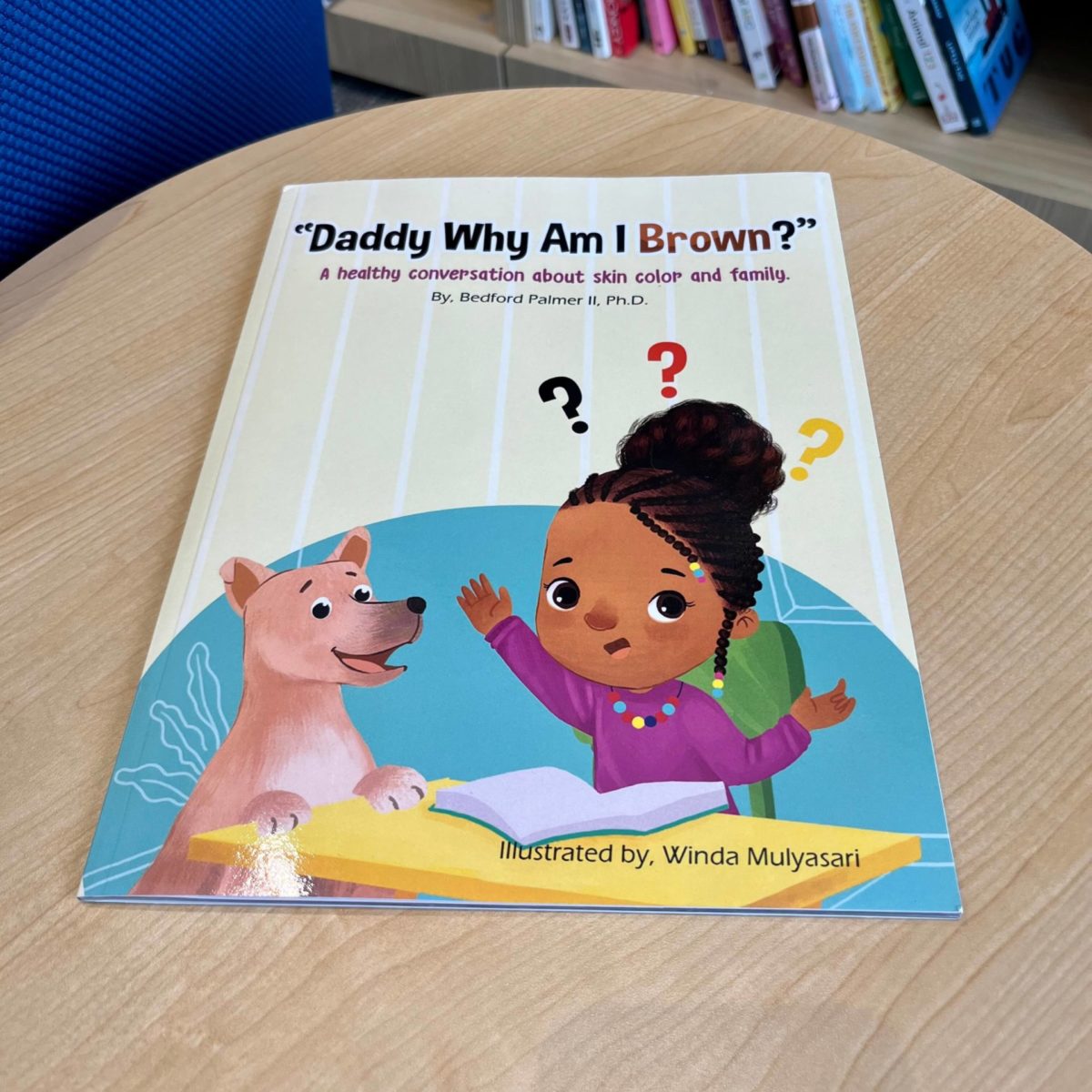
5. A History of Me by Adrea Theodore
This story is a good story for people that live in areas where there are few people of color. It aptly describes how it feels to be the only young black or brown child in a classroom. Life can be hard for the only brown girl in a classroom full of white students. When the teacher talks about slavery, she can feel all of her classmates staring at her. When they talk about civil rights, she is the one that other kids whisper about on the playground. In those moments, she wants to slip away or seep into the ground and she wonders, is that all you see when you look at me?
“What really matters is what she sees when she looks at herself. She is a reflection of the courage, strength, intelligence and creativity that’s been passed down from generation to generation through her ancestors.” From the publisher.
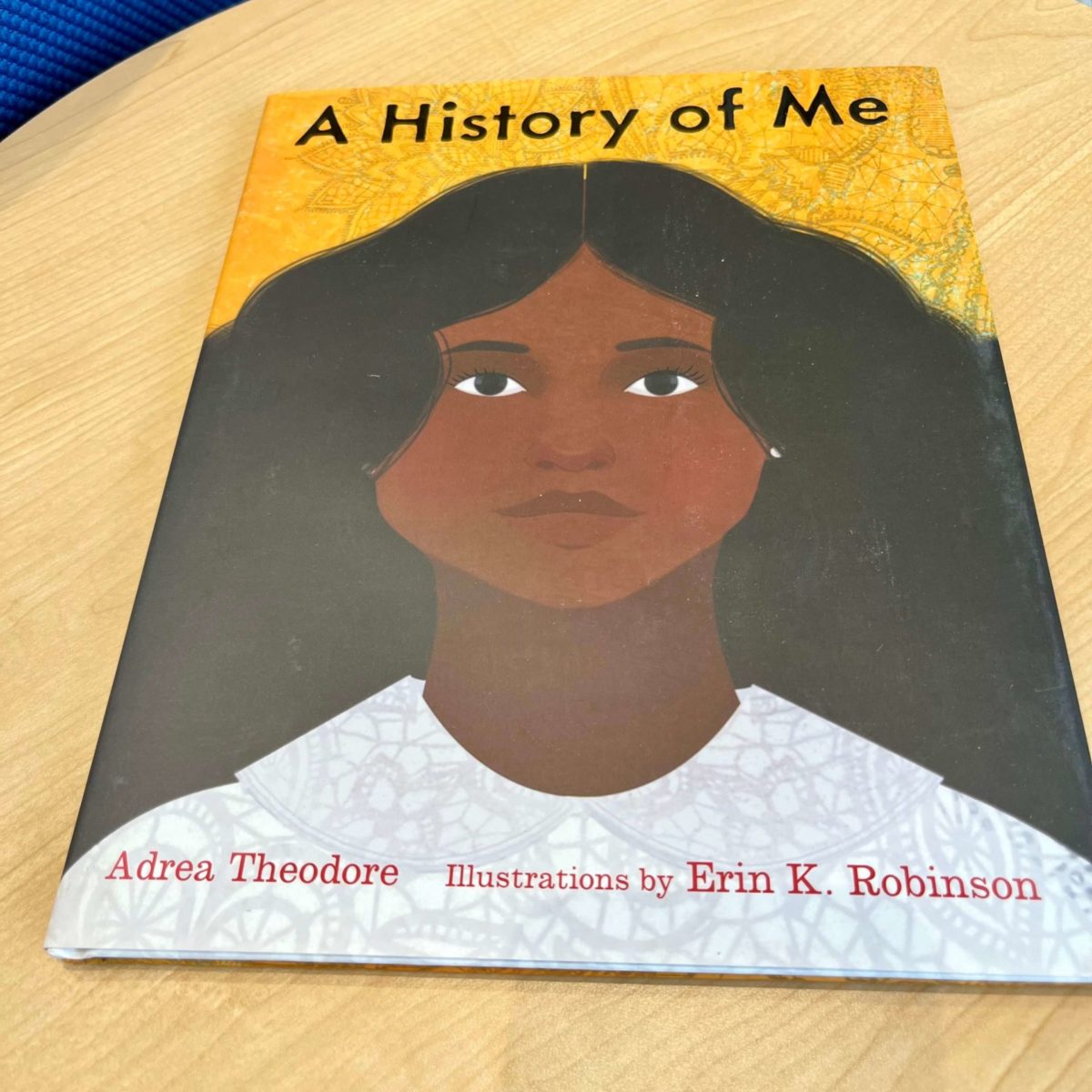
In celebration of Black History Month, The Family Partnership is giving away four of these books. Follow us on Instagram and click here for details!
Learn more about Dianne Haulcy’s Early Risers podcast. Early Risers is a podcast from Little Moments Count and MPR with frank facts, engaging stories and real how-tos for anyone who cares about raising children with a clear-eyed understanding of cultural differences, race and implicit bias.
Learn more about Early Education and Care at The Family Partnership.
In 2021, The Family Partnership’s Board of Directors adopted a refreshed strategic framework with five priority areas. The framework focuses on how we accomplish our mission to build strong families, vital communities and better futures for children.
In 2022, we made progress on each strategic priority as part of the three-year plan.

